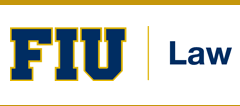Event Title
Envisioning The Future of the Bar Examination and Entry to the Profession
Location
FIU College of Law, Grand Courtroom
Start Date
13-4-2018 11:30 AM
End Date
13-4-2018 1:00 PM
Chair and Moderator
Cynthia Nance, Dean Emeritus and Nathan G. Gordon Professor of Law, University of Arkansas School of Law
Description
While bar admissions in the United States are handled separately by 50+ jurisdictions, the bar admissions authorities in all jurisdictions subscribe to two common essentials: that graduation from an ABA-approved law school qualifies a graduate to sit for the bar examination; and that the bar exam produced by the NCBE is the primary test by which competence for the practice of law is determined. If we could have a clean slate, how would we assess competency for admission to the bar? What would a bar exam look like if developments in technology, globalization, and other changes in the practice of law were taken into account? Should the legal profession adopt a staged process for admission to the bar akin to that used in other professions? What are the potential alternative examination and licensure models? What are the advantages and challenges to a model where more and more effort is being put on “teaching to the bar”? With 50+ separate bar admission authorities, how can these changes be accomplished?
Envisioning The Future of the Bar Examination and Entry to the Profession
FIU College of Law, Grand Courtroom
While bar admissions in the United States are handled separately by 50+ jurisdictions, the bar admissions authorities in all jurisdictions subscribe to two common essentials: that graduation from an ABA-approved law school qualifies a graduate to sit for the bar examination; and that the bar exam produced by the NCBE is the primary test by which competence for the practice of law is determined. If we could have a clean slate, how would we assess competency for admission to the bar? What would a bar exam look like if developments in technology, globalization, and other changes in the practice of law were taken into account? Should the legal profession adopt a staged process for admission to the bar akin to that used in other professions? What are the potential alternative examination and licensure models? What are the advantages and challenges to a model where more and more effort is being put on “teaching to the bar”? With 50+ separate bar admission authorities, how can these changes be accomplished?

